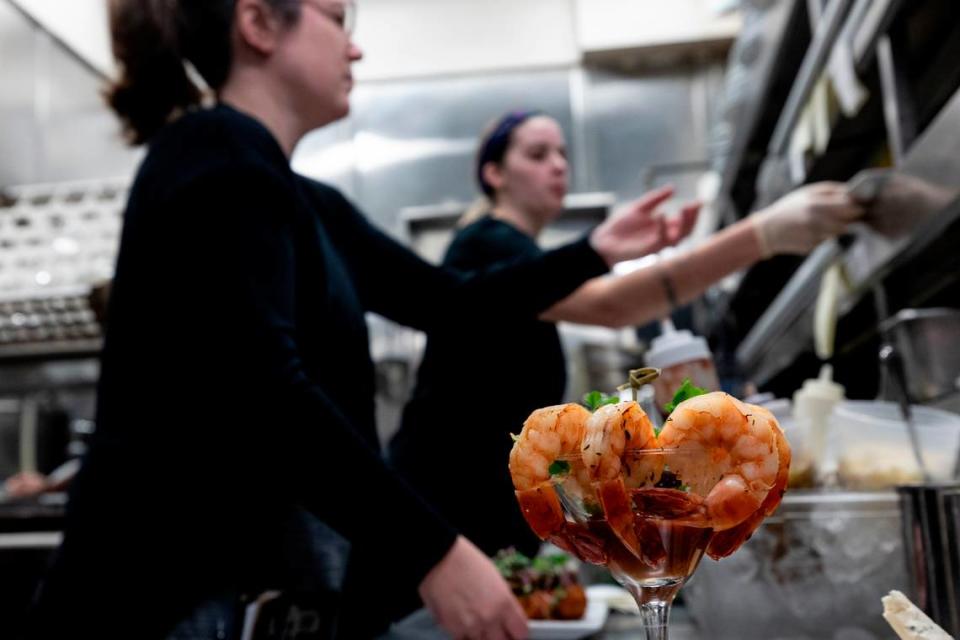‘It’s never been harder’: Midlands restaurants navigate a complicated, changing dining scene
There is a life cycle for all things. Even, as it turns out, for restaurants.
And in Columbia and the Midlands, it seems that cycle of death and birth — of curtain calls and trumpeted debuts — has been spinning at a particularly high rate on the restaurant scene in the last few months.
Consider, for a moment, some of the high-profile closures of long-running Midlands restaurants that have dominated headlines just since December.
Al’s Upstairs, the cozy West Columbia Italian restaurant that was open for 44 years on State Street, closed its doors in December. River Rat, one of Columbia’s first craft beer breweries, shuttered after 10 years. Yamato, a Japanese steakhouse in the Harbison area, closed up shop after having a presence in Columbia for 49 years. Village Idiot, which has several locations in the Midlands and recently launched a franchising plan, closed its Forest Acres location after 14 years. Jin Jin, a Chinese food spot that had been a fan favorite in West Columbia for 29 years, bid farewell in December.
And, most recently, there was the January closure of Rockaway Athletic Club on Rosewood Drive. That bar and grill — which was famous for its pimento cheeseburgers and frigidly cold beer, along with the fact that it had no signage outside its building — had been in business for 42 years.
Just in that sampling of a half-dozen closures, 188 years of restaurant experience have exited the Midlands scene.
And yet, at the very same time, new restaurants of various stripes continue to burst onto the Midlands landscape.
Since Nov. 1, The State has reported on 24 restaurants that have either opened or have announced plans to open in the Midlands area, representing a broad swath of culinary genres.
The list includes local spots like Masa Mexican Street Food, which opened on Devine Street on Feb. 5, and The Epicurean Table, which recently debuted with a diverse menu and an elegant dining room along Garners Ferry Road in Hopkins. And there are, too, the small regional chains, such as Asian dining concept CO, which opened a Forest Acres spot in Trenholm Plaza in January.
And, yes, the mega chains have been making moves in the Midlands, too. See the new Pizza Hut that opened at 2400 Forest Drive, or the new Outback Steakhouse that is being planned for Sunset Boulevard in Lexington.
It all makes for what appears to be something of a transitional moment on the Midlands food scene, one where the challenges and realities of the modern economy strain against the consumer demand for the next new thing or the latest culinary arbiter that brings a sort of validation to an emerging city.
A swath of restaurateurs — from bar owners to fine dining purveyors to ice cream shop proprietors to budding coffee shop bosses and beyond — spoke to The State about the state of the restaurant scene in the Midlands.
The general consensus? It’s an environment rife with challenges, among them stubbornly high food costs, labor issues and mounting concerns with the rising cost of liquor liability insurance — a force so strong “it could force a ton of people out of business,” one longtime business owner said.
But it’s also a moment in which restaurateurs are stretching to try new things, when Midlands restaurants have continued to be nominated for prestigious national awards, and when the public continues to cast its eyes on what may be next.
“In Columbia — and maybe everywhere, but this is where I live — people are very nostalgic, and they like their old places,” said longtime restaurateur Steve Cook, who owns Saluda’s in Five Points and Il Bucato pizzeria on North Beltline Boulevard. “But they cannot wait for the new thing. They cannot wait for the new restaurant to open. It may be that way everywhere, but certainly is here.”
The trick, it seems, is balancing that love for the old and new and navigating the demands, economics and laws that insinuate themselves on an ever-evolving landscape.
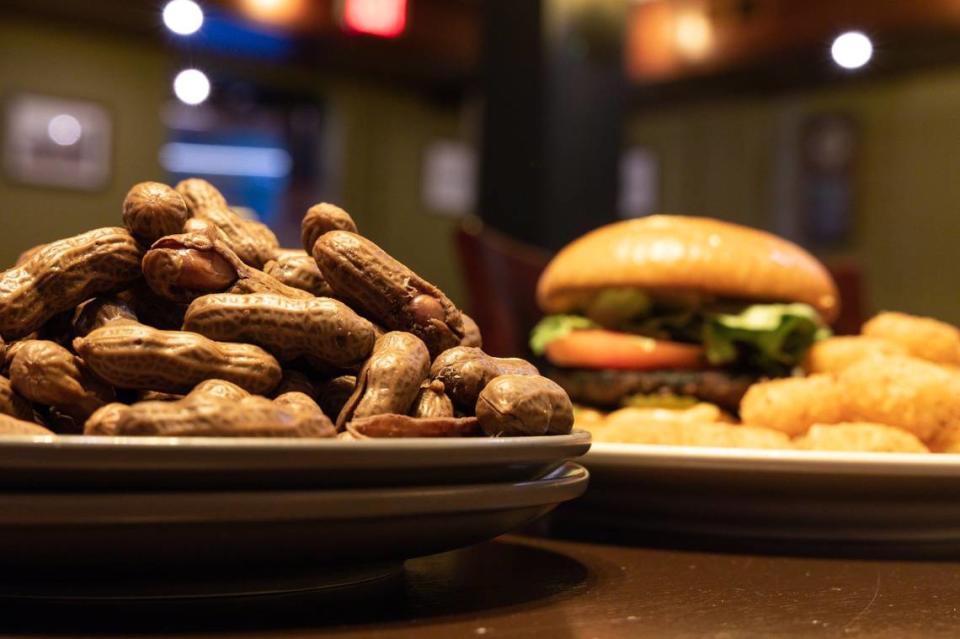
‘It’s definitely not for the weak’
Phill Blair is the definition of a mainstay on the Midlands restaurant scene. Professionally, it’s all he’s ever known.
He started working in a restaurant when he was just 15 and eventually found a way to have his own place. He was the co-owner of The Whig, the subterranean bar at the corner of Main and Gervais streets that became a favorite late-night haunt of many Columbians. But even that revered watering hole became a part of the shifting scene in Columbia: In late 2022 The Whig closed after 17 years, as the building where it was located was purchased and is now the future site of a Marriott Moxy hotel.
And yet Blair soldiers on. He currently is the co-owner of WECO Bottle and Biergarten, the popular spot on Meeting Street in West Columbia where, on virtually any night, you are likely to find a cross-section of the local citizenry enjoying craft beer from the bar and offerings from local food trucks out on the establishment’s expansive lawn.
While he has long been enamored with providing places for folks to enjoy food and drinks, Blair admits this is a tough moment in the industry, in some regards.
“There is tons of new stuff coming online,” Blair said of new restaurants that have opened or that have been announced. “And there have been a bunch of places closing. It’s definitely never been harder to do business than right now.
“I do worry that a lot of the new places opening up are either kind of chains with super deep pockets, or they just don’t know what they are getting into because they haven’t done enough homework on what it’s like to do business in South Carolina right now.”
Blair said costs, including the price of basic ingredients and the prices for supplies like to-go boxes, are seemingly as high as they’ve ever been.
“You name the product, and it’s significantly more than it was a few years ago, with no sign of going back down,” Blair said.
Saluda’s has been a fine dining staple for more than a quarter-century in Columbia’s Five Points village just east of the University of South Carolina campus. And Cook has long been bullish on the neighborhood: He serves on the board of the Five Points merchants association, and he has plans to open another restaurant — a Mexican place at 819 Harden St. — later this year.
Like Blair, Cook is a hospitality industry lifer. While he was quick to say he’s excited about the many openings and new activity on the Midlands dining scene, he also noted the cost of doing business remains high in the aftermath of the COVID pandemic.
“I think the restaurant business is a microcosm of a broader economy and society at-large,” Cook told The State. “Your food costs more than it did three years ago. So does your couch, so does your mattress, so does your everything. Now, it has leveled out, but that doesn’t mean prices went back to where they were. No, you just got used to what your (food and supply) prices were, and you raised your (menu) prices accordingly.”
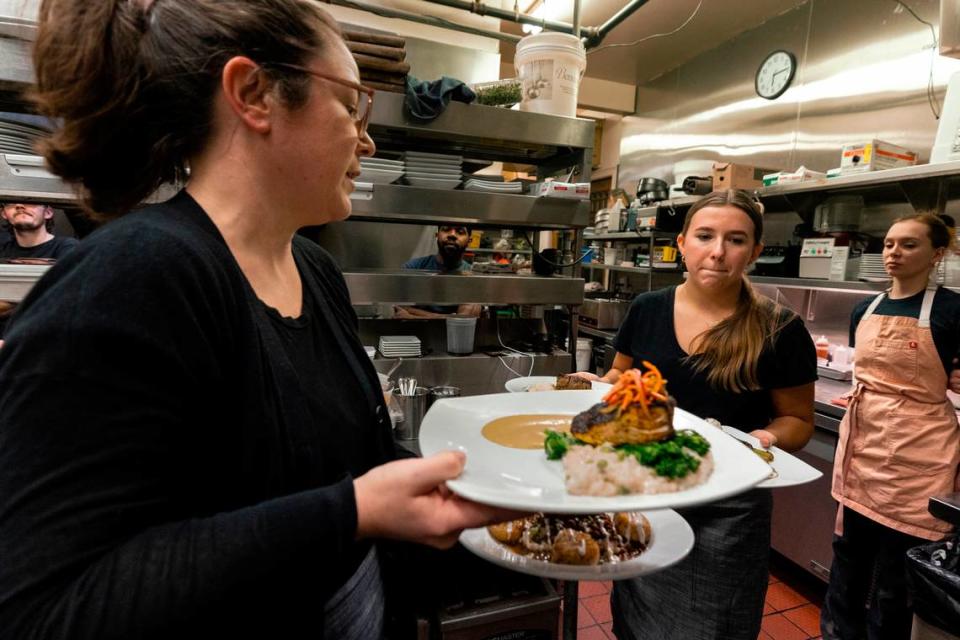
But it’s not just the longtime bar and restaurant owners who are taking note of prices and the various challenges that are seemingly part-and-parcel with being a restaurateur in the current moment. New players on the scene are working to find their footing.
Nearly two years ago, Sonia Norman opened Ice Cream Taco at 4884 Sunset Blvd, along a high-traffic corridor in Lexington. The business offers, as one might imagine, ice cream and tacos, along with hot dogs and other treats.
While Ice Cream Taco quickly found a devoted audience — readers of The State voted it their favorite Midlands ice cream place in a 2022 poll run by the newspaper — it had trouble growing its customer base at the Lexington location. Constant vehicular traffic was a little too intense for some to make the trip, Norman said, and there weren’t many other stores or restaurants in the direct, walkable vicinity that might draw casual, incidental customers to the ice cream shop.
So, Norman decided to make a major change. In late 2023 she moved Ice Cream Taco to 2708 Emanuel Church Road in West Columbia, into a shopping center that includes a number of other restaurants and stores.
The ice cream shop owner said she simply had to be nimble.
“It’s definitely not for the weak,” Norman said of restaurant ownership. “I took a lot of hits. There were some days where it was really bad. I’ve told people that I felt like I was out there in the middle of the ocean. I was just drowning.
“But, I saw land (with the new West Columbia shop), and I saw there was a need for ice cream, tacos and chili dogs. And my customers were saying, ‘Hey, we don’t want you to leave. What can we do to keep you around?’”
So far, the move seems to be paying dividends. The business has posted photos on Facebook showing full-house crowds at the Emanuel Church Road shop. While Ice Cream Taco faces the same pressures many restaurants are seeing — Norman said she recently got a letter from supplier Hershey’s informing her the cost of ice cream was going up — Norman said she feels like the new storefront is finding a groove.
“It’s more than just ice cream, tacos and chili dogs,” she said. “It’s a whole vibe where we have a good time in there and people really connect. Families come together, and it’s sort of an unwinding spot. There’s genuine love there.”
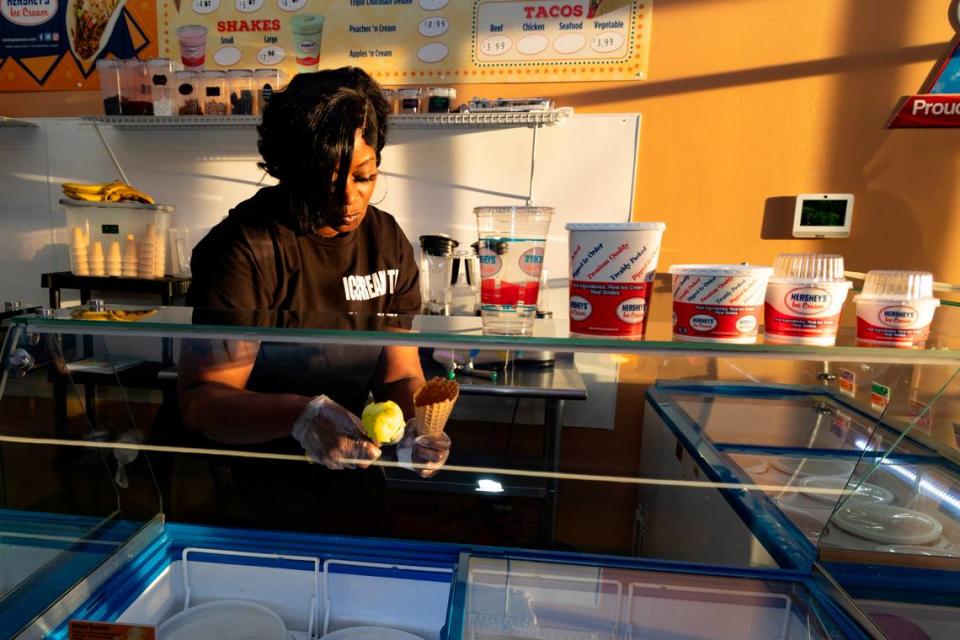
‘The clock is ticking’ on liquor laws
There has been a gathering storm in the restaurant industry not only in the Columbia area, but across South Carolina, that is of particular concern to establishments that serve alcohol.
A state law passed in 2017 requires establishments that sell beer, wine or liquor for on-premises consumption to carry at least $1 million in liquor liability insurance. In the law’s wake, restaurateurs say some insurers have left the market in South Carolina in the last several years, thereby limiting the number of carriers they can use. Subsequently, many restaurateurs and bar owners have seen liquor liability insurance rates skyrocket.
“It’s a disaster,” Cook said. “A disaster. ... I’ve got tons of friends who are in more of the bar business than I am. It’s starting to break their backs. It has trickled down to our stuff, too. It’s trickled down to everybody.”
Cook said he has seen his liquor liability insurance rates increase 100% for Saluda’s in the last few years.
“I may not have a sob story that my liquor liability insurance is $100,000 a year, but when it goes from, say, $5K to $12K in two years, that’s money that’s not available for expansion, employee raises, things like that,” Cook said. “The average person just doesn’t realize it’s going up across the board.”
Meanwhile, at WECO, Blair said they have seen their liquor liability rates go up 300% since last year.
“These aren’t small increases,” Blair said. “There are a lot of vocal business owners that will whine and complain about a host of things. But this is not that. This is not anyone crying wolf. People have seen 100%, 200%, 300% (rate hikes), which equates to tens of thousands dollars some are paying that they weren’t previously paying, on top of the costs of goods and all of that.
“It could force a ton of people out of business.”
At least one Midlands restaurant has directly cited liquor liability as a reason for closing. Henry’s in Cayce closed in January, saying in a Facebook closure announcement, “Due to the increased Liquor Liability Insurance we cannot continue to operate.” Of note, the bar and restaurant is facing a wrongful death lawsuit accusing it of overserving a patron who later was involved in a deadly September 2023 crash where a man and his granddaughter died. That lawsuit is pending, per court records
Restaurateurs and venue owners have recently been pushing for legislative reform on the liquor liability issue. However, as Blair notes, such reform is often a complicated and time-consuming prospect.
“I know it’s being talked about, but I don’t think people realize how fast the clock is ticking,” he said. “When you are talking about increases from year to year of hundreds of percent, there’s no more room to go. The runway runs out.”
Will Green has been in the bar business in Columbia for a number of years. He was a co-owner at The Whig, and last summer he and partners Chelsea Ford and Jessica Ochoa opened The Hoot, a cozy bar with a vegan food menu on Rosewood Drive.
As a new establishment, Green said The Hoot has not yet seen a leap in liquor liability insurance rates, though he said that could be a concern when the time comes for renewals.
But Green did say he wishes there would be a liberalization of South Carolina’s broader liquor laws, particularly as it relates to a section of the state constitution that says businesses must “engage primarily and substantially in the preparation and serving of meals” in order to get a license to sell liquor by the drink. That provision, in fact, was used as a weapon in a battle that shut down a number of what were perceived as trouble-making bars catering to college students in the Five Points entertainment district in recent years.
But not every bar is a hard-charging college bar, and Green wishes there was room in the law for more thoughtful, creative options.
“Our liquor rules in this state — the fact that food and liquor have to be tied together — make it difficult to be on the cutting edge of what can be done in bars and what can be really exciting about a bar,” Green told The State “Some of the most exciting bars I’ve ever been to (in other states) don’t have food involved at all. Some of the most amazing, fun places don’t have food, if you go to other cities in different states. It’s lovely to go to a bar that is single-minded.”
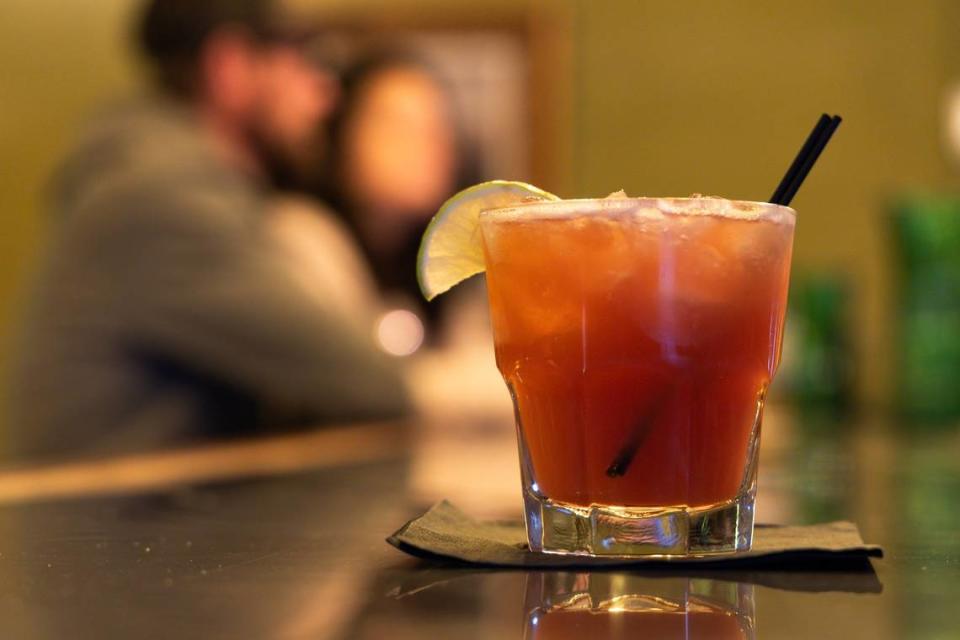
‘There is so much talent in town’
And yet, despite some high-profile closures, and in the face of various market forces and laws that owners are grappling with, there is energy on the Midlands restaurant scene.
In the last year, literally dozens of new restaurants — from barbecue joints to coffee shops to hot dog hubs and beyond — have opened their doors or announced plans to open.
And Midlands restaurants have continued a trend of getting noticed on the national scene. Recently, Lula Drake Wine Parlour, Kiki’s Chicken and Waffles, and City Limits Barbeque each were named semifinalists for coveted James Beard Awards. It marked the second consecutive year that multiple Midlands institutions were nominated for Beard Awards, which are broadly considered the top honors in the culinary world in the U.S.
Green, The Hoot’s co-owner, said he sees exciting things coming out of Columbia kitchens.
“I think it is encouraging that there is so much talent in town,” Green said. “There are lots of people locally doing really interesting things in kitchens and in bars. I think that you can go to bars in Columbia and get an experience that stands up to anything Charleston or Greenville or New York have to offer. I think that, overall, we all have to raise our game. But I think at the high end of all of those things, people are doing some really exciting things.”
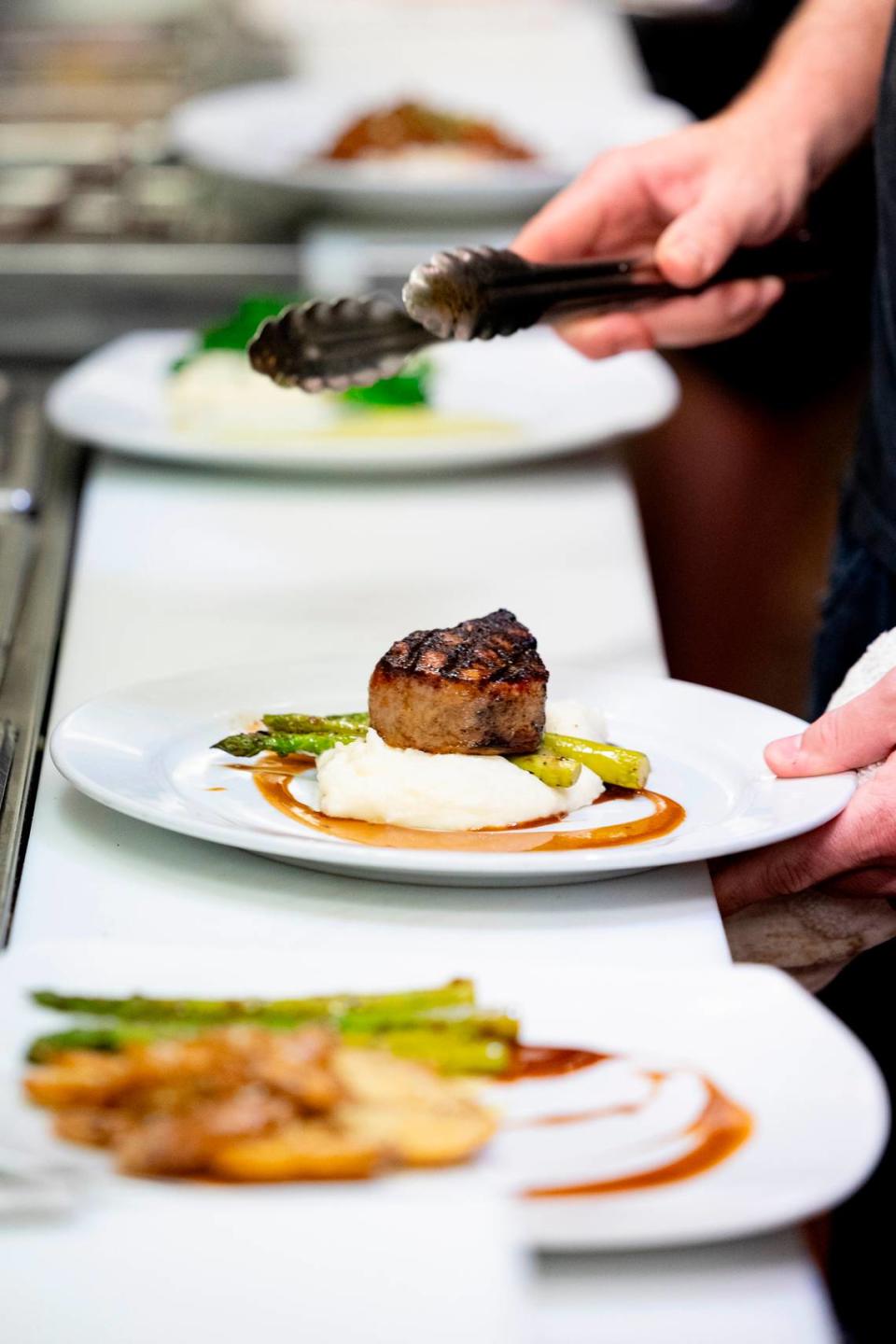
Some restaurateurs are literally doubling down on the Midlands. Piecewise Coffee Co., which has had a location on State Street in Cayce for several years, recently opened a second location on Devine Street in Columbia.
Piecewise is owned by twin brothers Jacob and Zach Kirby, who grew up in the Midlands. Aside from serving lattes and baked goods, Jacob said they also are trying to use the shops as a showcase to recent college graduates and other young professionals that Columbia is a place where you can put down roots.
“My brother and I, in a way, feel like we are desperately trying to convince adults that they can build a life here after college,” Jacob said. “That’s what we are trying to do. We are building lives here that you can have into your 30s. You can be a 30-year-old in this city and live a life that you enjoy and have local spots that you enjoy. ... We are helping paint a picture of a life that can be lived here, long term.”
Developer Frank Cason, president of Columbia’s Cason Development, has helped usher in fast-casual chicken finger places across the state, from major fast food chains to locally owned casual dining spots.
He most recently made headlines when he bought the Rosewood Drive building where Rockaway Athletic Club was long located. Cason has said that his initial intention for that property is for it to once again be home to a restaurant in the future.
Cason said Columbia remains fertile ground for restaurants, whether they are fast-casual chicken finger places or high-end steakhouses.
“Really good operators are succeeding at every level in Columbia,” Cason said. “You’ve got Hall’s (Chophouse) on one hand that came in and almost everyone in town said there’s no way those guys can make it and people can afford to spend money on that place and those kind of check sizes. But they are killing it.”
Headlines about new restaurants haven’t been lost on Cook, the longtime Saluda’s owner. He said part of that influx likely has come as restaurateurs and developers have seen the growth of the region. In 2000, the combined population of Richland and Lexington counties was 539,000. In 2022, that combined population had swelled to 725,000, per census stats.
“You see places opening up every day, it seems like,” Cook said. “So, there’s a lot of energy, whether it’s a local, small place or whether it is a regional or national chain. I think some of those bigger players see Columbia as a growing, emerging market. As they sort of saturate Charlotte, Atlanta, etc., they see Columbia as a place that is growing.”
